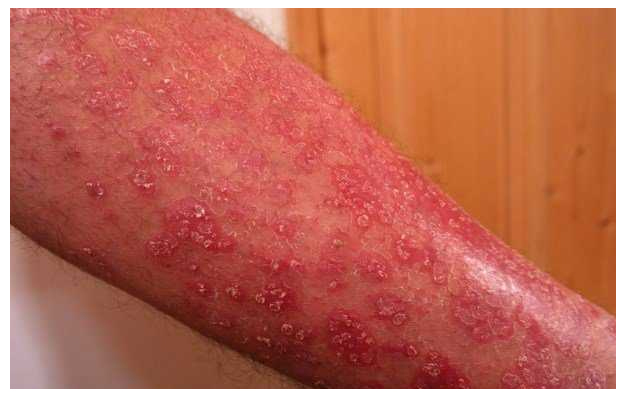

PELLAGRA
Pellegra is disease condition caused due to deficiency of vitamin B3 also known as Niacin. Niacin is a component of electron transport chain and is essential to glycolysis and other metabolic process.
CAUSE: Pellagra arises when the diet is chronically deficient in niacin(nicotinic acid) or contains excess isoleucine. This occurs mainly among populations whose staples are maize and sorghum (especially if these have been in strong for a long time) and who have little other food.
CLINICAL SYMPTOMS:
HOMOEOPATHIC TREATMENT:
Homeopathy is one of the most popular holistic systems of medicine. The selection of remedy is based upon the theory of individualization and symptoms similarity by using holistic approach. This is the only way through which a state of complete health can be regained by removing all the sign and symptoms from which the patient is suffering. The aim of homeopathy is not only to treat pellagra but to address its underlying cause and individual susceptibility. As far as therapeutic medication is concerned, several remedies are available to treat pellagra that can be selected on the basis of cause, sensations and modalities of the complaints. There are following remedies which are helpful in the treatment of pellagra:
Arsenic Album: Papular, dry, rough, scaly; worse cold and scratching. Great weakness of memory. -Stupidity and dullness.-Delirium.-Delirium, with great flow of ideas.-Loss of consciousness, and of sensation; dotage; maniacal actions and frenzy. Madness; loss of mind. Nocturnal diarrhoea, and renewal of the diarrhoea, after having drunk or eaten.
Bovista: Weakness of memory.-Absence of mind. Misapplication of words in speaking and writing, Diarrhoea with colic, cuttings, and pain of ulceration in the abdomen.-The first portion of the stool is hard, and the latter part thin and watery. Itching, esp. when the body is warm, and of that kind which receives no relief from scratching.
Gelsemium: Unconnected ideas; cannot follow an idea for any length of time; if he attempts to think consecutively he is attacked by a painful vacant feeling of the mind.-Loss of memory, with headache. Stools loose, colour of tea, dark yellow.-Stools yellow; faecal; bilious; cream-coloured; clay-coloured; green.-Diarrhoea with intermittent fever.-Diarrhoea after sudden emotions, grief, fright, bad news; anticipation of any unusual ordeal. Papulous eruptions resembling measles, esp. on the face.-Itching on the head, face, neck, and shoulders.-Skin hot and dry.
Psorinum: Hopeless; despairs of recovery. Melancholy, deep and persistent; religious. Diarrhoea preceded by colic; green, bilious, mixed with mucus; four times a day, without pain.-Involuntary stools during sleep.-Lienteria.-Soft, difficult stool; and copious. Itch-like eruption on face, hand, back, and leg, and agglutination of eyes. voluptuous, where a flea had bitten, with white, hard blisters on a red base
Sulphur: Absent –minded. Poor concentration. Very forgetful. Dull, difficult, thinking, misplaces or cannot find proper words when talking or writing. Diarrhœa, particularly where there is the red line about the anus, and the patient can't wait, must go immediately desire is felt; also waking early in morning with diarrhœa, which drives one out of bed in a great hurry; tenesmus in the same way, drives one in a great hurry; rumbling and rolling in bowels. Exanthema in general on any part of the body which is < by any heat, from getting warm at work, in bed, Skin dry; rough; scaly; voluptuous itching─"feels so good to scratch"
Phosphorous: .-Prolonged looseness of bowels.-Faeces of the consistence of pap.-Serous diarrhoea.-Diarrhoea with diminished strength (< in morning).-Mucous diarrhoea.- Undigested faeces.-Greenish, grey (or whitish-grey), or black faeces (with flakes of mucus).-Stools watery, with whitish-yellow and cheesy masses; lumps of white mucus.-Stools odourless save for a slight mouldy smell.-Stools like scraping of intestines.-Involuntary evacuations.-Discharge of mucus from anus, which remains continually open.-Tenia, or ascarides from rectum, during stool. After stool: pressure, burning pain, and tenesmus in anus and rectum, with great exhaustion. Burning in the skin.─Excoriated spots on skin, with cracks and shootings.─Round, tettery spots over whole body.
Pulsatilla: Weakness of memory, ─Involuntary and unperceived evacuations during sleep.─Stools frequent soft, diarrhœic, consisting of yellow mucus or mixed with blood, preceded by cutting in abdomen, or with pains in small of back.─Nightly diarrhœa, discharges watery or green like bile, after previous rumbling in abdomen.─Stools consisting only of mucus, or acrid, or bloody, or very offensive, or white. Itching, mostly burning or pricking (as if caused by stings of ants), principally in evening, and at night in heat of bed, < by scratching